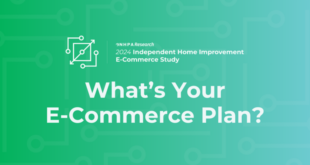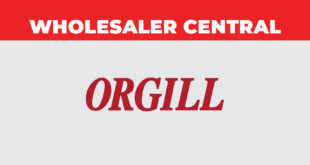If you have questions about health insurance, but you’re not sure where to start, the North American Retail Hardware Association (NRHA) is here to help.
NRHA understands that health insurance is an important, yet often complicated, topic. To help independent retailers gather a better understanding, Bob Chiesa, president and CEO of Custom Benefits Insurance Group answers the questions he hears most frequently from business owners.
In addition to working closely with experts like Chiesa, your trade association offers the NRHA Health Insurance Plan as an affordable alternative health insurance option that could save you money. The plan offers health, dental, vision and life insurance options, and is designed specifically for independent home improvement business owners. For more information, click here.
Health Insurance FAQs
FAQ #1: What is the difference between a Traditional Deductible Plan, a PPO plan, an HMO plan, and an HSA plan ?
Bob Chiesa (BC): I’m going to break down each of these plans individually. First, a Traditional Deductible Plan is the type of plan the majority of us grew up with. You have an upfront deductible, and after that, you’re subjected to a coinsurance split. Typically, your carrier will pay 80 percent and you pay 20 percent up to a certain level. The positive aspect about this type of plan is that you can see any doctor. The negative side is that there are no copays, so everything is subjected to the deductible and coinsurance.
A Health Maintenance Organization Plan, otherwise known as an HMO, typically requires a designated Primary Care Physician (PCP) who becomes the point person for care and treatment of individuals on the plan. Under this plan, If you need to see a specialist, you must get a referral from your PCP. When HMO Plans first came out, they covered many preventative services the traditional plans did not, and office visits are covered with just a copay. This type of plan is typically less expensive and you have office visit copays. However, it involves a much smaller network of physicians and hospitals, there are no out-of-network benefits and patients must get referral letters.
A Preferred Provider Organization Plan (PPO) is a combination of an HMO Plan and a Traditional Plan. If you stay in the network of doctors, your benefits are paid at a higher level and many services are covered with copays like an HMO. If you go outside the network, almost everything is subjected to a deductible and coinsurance like the Traditional Plans. This type of plan is much more flexible, offers a larger network of providers and does not require referrals. But, over the years, this type of plan has risen in cost and is now more expensive than some of the other options.
And finally, Health Savings Account Plans (HSA). This type of plan allows you to put in pre-tax dollars to be utilized for eligible health care expenses. It is typically tied in with a high-deductible plan with no copays until the deductible is met. In some cases, there are never copays. Also, these plans allow you to save money when you have a year with low claims because the money in your Health Savings Account is yours. This type of plan allows you to use pre-tax dollars to cover eligible expenses and could allow you to save money if you stay healthy. However, office visits, prescription drugs and other health-related expenses are all subjected to the deductible first and the deductibles are typically high.
In order to determine which type of plan is best for your business, I recommend contact your insurance provider to discuss your options.
FAQ #2: When I go to the doctors and I pay an office visit copay, do I still get a bill?
BC: In an effort to reduce the cost of the insurance plan, many providers now subject diagnostic services and lab work to the deductible and then coinsurance. The office visit copay covers the cost of the physician seeing you, but in many cases the lab work and diagnostics are subjected to the deductible and coinsurance causing you to get billed for those services.
FAQ #3: When does my deductible start over?
BC: With the large majority of health insurance plan, the deductible is on a calendar year basis. As such, the deductible resets on January 1 each year. There are a few plans where the deductible plan resets when the health plan renews. In such a scenario, if your plan renews July 1, your deductible would start over then, as well. It is always best to check with your insurance agent to see when your deductible resets.
FAQ #4: How do I figure out what my maximum out of pocket is?
BC: Your maximum out of pocket expense is your deductible and the total of your coinsurance cost sharing added together. For example, if your plan had a $1,000 deductible and covered expenses are paid by the carrier at 80 percent after the deductible, with your share being 20 percent until your 20 percent totals $3,500, your maximum out of pocket would be the $1,000 deductible plus the $3,500 cap of your coinsurance for a maximum out of pocket of $4,500. Copays also count toward your maximum out of pocket. A Summary of Benefits and Coverage comes with all health insurance plans, and the maximum out of pocket will be detailed there.
FAQ #5: Do I have health care coverage when I go outside my home state when I am on vacation or traveling for work?
BC: Almost all health insurance plans provide coverage for life-threatening situations and medical emergencies. Many of the larger health plan carriers are national and have providers in every state for you to see and receive in-network benefits even when outside your home state.
FAQ #6: Where is the best place to find resources and stay up to date with health insurance information?
BC: The most reliable source for information will always be your health insurance agent. My staff and I are always available as a resource to talk through health insurance questions and concerns whether you’re a current customer or not. Through the NRHA Health Insurance Plan and Custom Benefits Insurance Group, I’ve helped many independent home improvement retailers and I’m happy to do whatever I can for you.
 Hardware Retailing The Industry's Source for Insights and Information
Hardware Retailing The Industry's Source for Insights and Information







